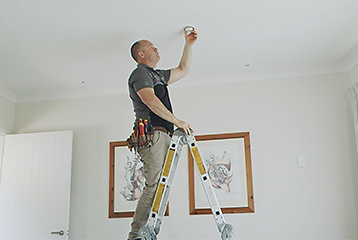Building projects require a lot of upfront thinking and planning to reduce the chances of long delays, unnecessary expenses or even running out of money part way through.
Here are some tips on what to consider before you sign away your hard-earned cash.
Make a list of all the things you expect to do in the project, and then sort them into groups from most to least important.
Start costing up the main groups of work you plan to do. You could get a rough idea from a builder or someone else who has done a similar project in your area. If you want a really accurate estimate, you can take detailed plans to a quantity surveyor.
Here are the main costs to consider:
Some experts recommend that depending on the project a contingency of about 10% -15% of the budget should be allowed, for possible hidden costs like water or borer damage, which might be uncovered once things get underway. And keep in mind that material and labour costs have been steadily increasing over recent years and may continue to do so.
Armed with a reasonable idea of costs, it’s time to work out what you can afford and the maximum you should be spending. Think about what your house is worth now and, given your area, the most someone would pay for a house like yours after the renovations. Make sure you don’t spend more than the difference - that’s called ‘over-capitalising’.
The most common answer to this is ‘longer than expected’. There can be several months of initial planning and design work. Weather and the availability of tradespeople can also affect your timelines, as can the discovery of unexpected remedial work. It’s a really good idea to think about how you’ll manage unforeseen delays because they’ll almost definitely happen.
Some minor types of building work won’t require a building consent from your local council, but many renovation projects will. Be sure to check before you press the start button, to avoid the possibility of expensive fines. The council will inspect your consented work; if it’s been done as planned and approved, they will issue a code of compliance certificate. It’s important to have one of these when you sell your home or make an insurance claim.
There may also be specific building restrictions that apply to your property. Examples include heritage listed homes, covenants on your title that limit what you can build, easements for things like council sewer lines, cross-lease titles that require structural exterior work to be approved by neighbours and apartments with body corporate rules.
If you have plenty of spare time, you could decide to manage the project yourself, hiring the necessary tradespeople as required. It’s a good idea to read up on the different types of building contracts, so you can choose an approach that best suits you.
You may need to take out additional home insurance or other types of insurance like Contract Works insurance, so talk to your insurance company. Remember to plan and budget for the possibility of hidden damage that gets exposed during the renovation. Finally, if your home was built between the 1940s and 1990s and there’s any possibility it has asbestos products, you should get it professionally checked before you do or sign anything.
Talking about insurance, don't forget to review your home insurance throughout and after your renovation. You may need to increase, or decrease, your sum insured to take into account your renovations. Check out our site for more information on home sum insured.


